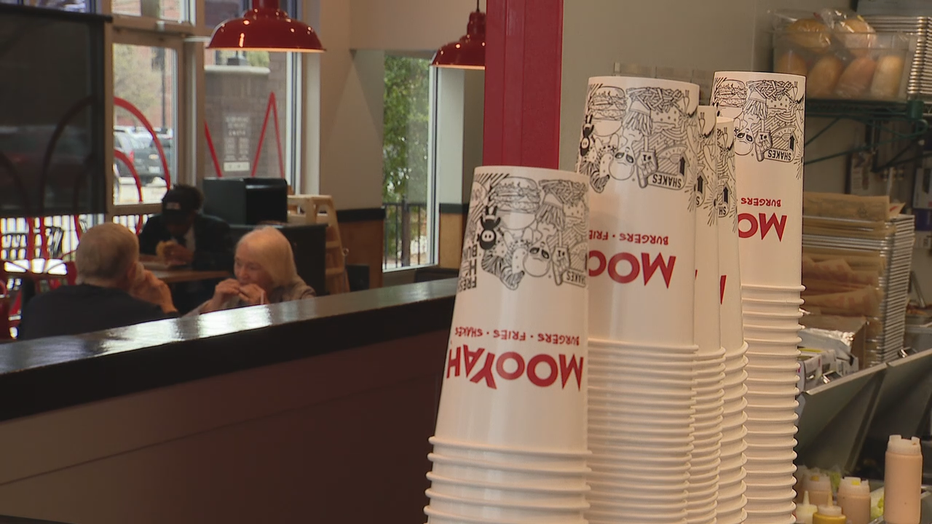Restaurants facing shortage of plastic cups
Restaurants facing shortage of plastic cups
Many national quick-service restaurants, and even Starbucks, are facing a shortage of plastic cups.
PLANO, Texas - There is yet another supply chain issue people may run into.
Many national quick-service restaurants, and even Starbucks, are facing a shortage of plastic cups.
Those at Mooyah said the cups they usually use are very hard to get ahold of right now, which is forcing the Plano-based company to use paper cups for its signature milkshakes.
And the company has found paper cups don't create the same sort of draw.
Would a milkshake in any other cup taste just as sweet?
Virginia Riley said her grandson would say yes.
"He wouldn't care, I think paper should be fine," she said.
But those who study the matter said shakes you can see are more appealing than those you can't.
Which makes the latest supply chain shortage difficult on companies like Mooyah, with 80 stores in 25 states.
"When you see a guest walking around with a beautiful hand spun shake, with toppings and mix-ins, and things you can see, it creates an impulse and we sell more shakes," said Maria Angles, vice president of supply chain for Mooyah.

RELATED: Inflation continuing to be issue for North Texas businesses, customers
Angles said the cup shortage began last summer.
"We moved all that volume to paper, because I started shopping other supplies and found they were in the same boat," she explained.
Another casualty is plastic ketchup dip packages, forcing a return to the squirt packets.
Even coffee giant Starbucks, with all its buying power, is still seeing shortages of its own on its all-important hot cups.
A spokeswoman told FOX4 over the phone:
"Select stores are experiencing a temporary shortage of hot cups, and we are working to swiftly replenish hot cups at these stores. In the meantime, some customers may receive their beverage in an unbranded cup. We apologize for the inconvenience and are working quickly and closely with our supply chain vendors to restock items as soon as possible."
Kyle Morga said he noticed the cup shortage at Starbucks, but the coffee tasted the same.
"Tasted just as good as it normally did," he said.
It is not clear how long this shortage will last.
Angles said a critical lesson from the pandemic and supply chain issues is to always have a backup plan and backup supplier if at all possible.

